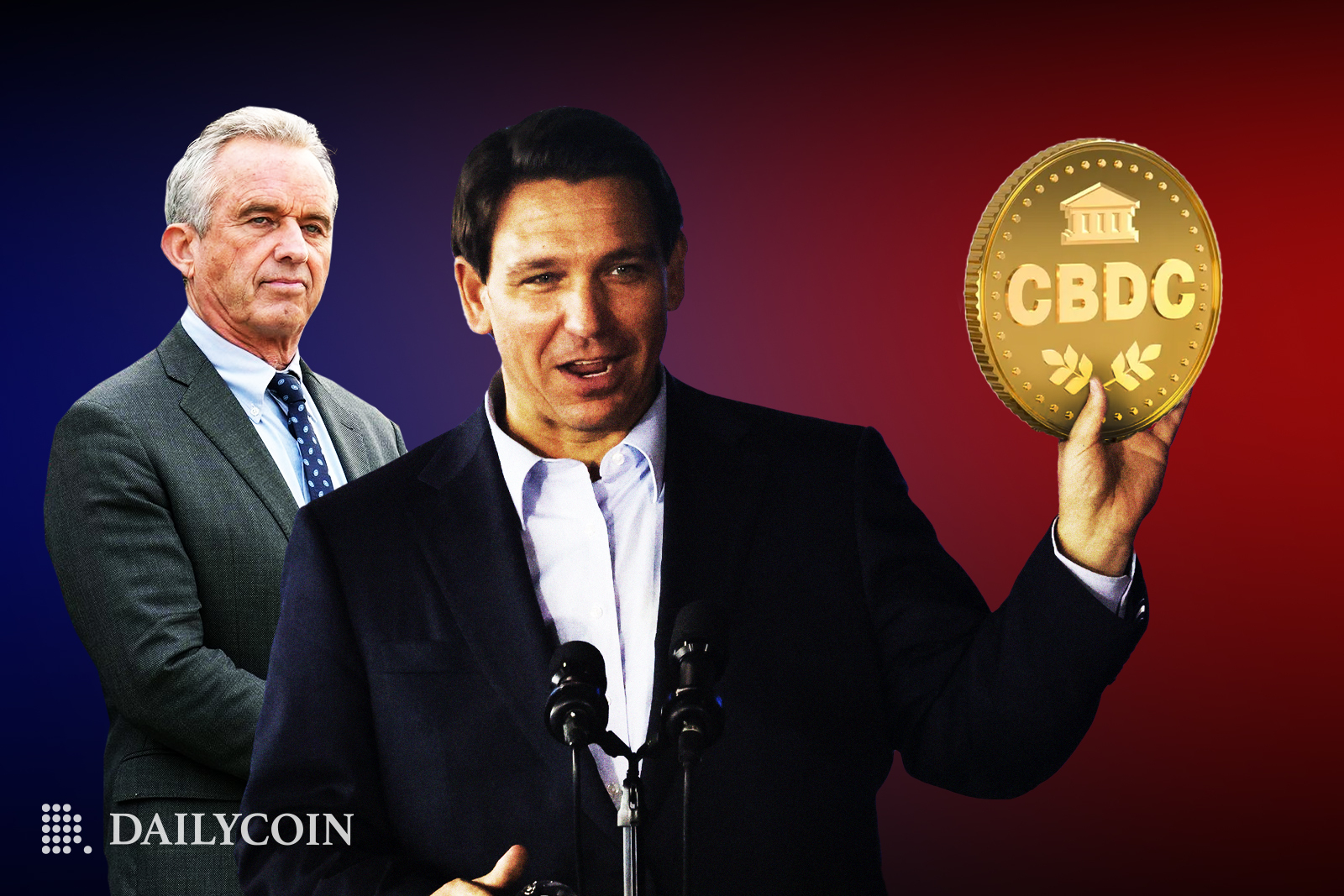
- The Federal Reserve has caught the ire of two presidential hopefuls after it denied that FedNow is a path to CBDCs.
- Robert F. Kennedy Jr. has said Biden’s administration is working to broadside crypto.
- Ron DeSantis has said it’s not up to the Fed to roll out a CBDC and that Congress would have the last say.
The idea of a Central Bank Digital Currency (CBDC) has become a hot-button political talking point in the U.S. Many Republicans feel a CBDC would be a tool of the current administration to control financial freedom, all while crowding out crypto.
Governor of Florida, Republican Ron DeSantis, and Democrat Robert F. Kennedy Jr. have both spoken out against a recent FAQ Twitter thread from the Federal Reserve about FedNow and its likeness to a CBDC. The Fed states FedNow is unrelated to a digital currency, or CBDC, but the nephew of former president John F. Kennedy is skeptical.
“A Barrage of Hostile Broadsides”
In a lengthy Twitter thread, Kennedy admitted the claim about FedNow having nothing to do with a CDBC would be “more easily digestible were we not aware of the Biden administration’s steady barrage of hostile broadsides against cryptocurrencies.”
Sponsored
Kennedy praised cryptos like Bitcoin, which offer citizens an escape from what he perceived as an inevitable bubble brought about by “big banks print[ing] $10 trillion-ten centuries of wealth in 15 years.”
The presidential hopeful also highlighted the recent regulatory enforcement on crypto, stating that there were “15 incidents where President Biden has weaponized FDIC, OCC + DOJ to force crypto-friendly banks to close their doors to crypto firms since Dec. 3.”
Sponsored
Despite being a Democrat, Kennedy’s primary concern aligns with other Republicans, such as DeSantis, who said, “ CBDCs are the ultimate mechanisms for social surveillance and control.” A sentiment echoed by many pro-crypto, anti-CBDC Republicans.
“This Wolf Comes as a Wolf”
DeSantis also took to Twitter to respond to the FedNow FAQ Twitter thread. The Florida governor, another presidential hopeful, was adamant that Congress would have the last say on creating a CBDC, not the Fed.
Creating and implementing a CBDC will continue polarizing opinions in the U.S., especially across Congress. Its use in the U.S. is also under consideration because of its impact on the broader ecosystem, with a former Biden aide saying a CBDC would “crowd out crypto.”
On the Flipside
- FedNow, as described by the Fed, is quite far off from what many would consider a CBDC. It is described as a payments service the Federal Reserve makes available for banks and credit unions to transfer funds.
Why You Should Care
The implications of a CBDC are currently hypothetical. However, they could have an impact on financial privacy, as well as the general cryptocurrency space. These sectors must be protected if a CDBC is to be rolled out in the U.S.
Read more about how politicians are trying to block CBDCs:
Sen. Ted Cruz Introduces Legislation to Block U.S. Digital Dollar CBDC.
CBDCRead more about the latest SushiSwap exploit:
SushiSwap Addresses SEC Subpoena While Exploit Leads to $3.3M in Losses.

